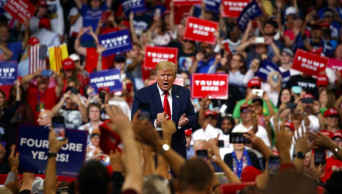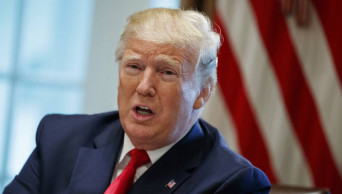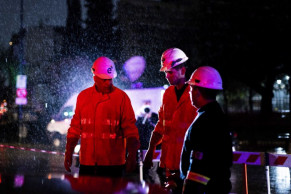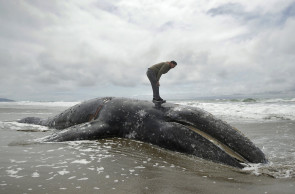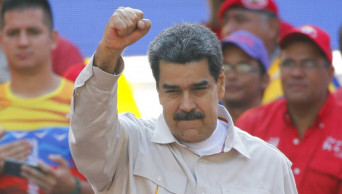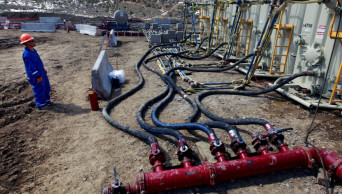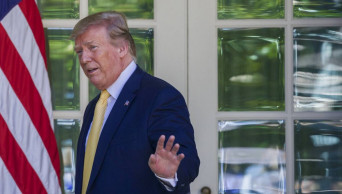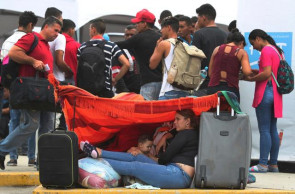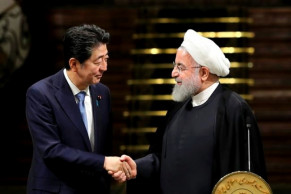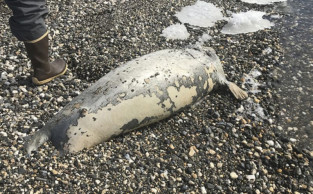usa
Trump rehashes gripes, rips 'radical' Dems in 2020 launch
Orlando, Jun 19 (AP/UNB) — Jabbing at the press and poking the eye of the political establishment he ran against in 2016, President Donald Trump officially kicked off his reelection campaign Tuesday with a grievance-filled Florida rally that focused more on settling scores than laying out his agenda for a second term.
Trump threatens to deport millions beginning next week
Washington, Jun 18 (AP/UNB) — President Donald Trump is threatening to remove millions of people living in the country illegally on the eve of formally announcing his re-election bid.
Hunt for cause of massive South America power outage begins
Buenos Aires, Jun 17 (AP/UNB) — As lights turned back on across Argentina, Uruguay and Paraguay after a massive blackout that hit tens of millions people, authorities were still largely in the dark about what caused the collapse of the interconnected grid and were tallying the damage from the unforeseen disaster.
Washington state waterfront owners asked to take dead whales
Port Hadlock, Jun 16 (AP/UNB)— At least one Washington state waterfront landowner has said yes to a request to allow dead gray whales to decompose on their property.
Diplomats: Europeans weigh sanctions on Venezuela's Maduro
Bogota, Jun 16 (AP/UNB) — Major European nations are considering imposing sanctions on Venezuela's Nicolás Maduro and several top officials for their recent crackdown on political opponents, although divisions remain over the timing of any action for fear of derailing a negotiated exit to the country's crisis, The Associated Press has learned.
Trump official pressed NASA on climate science
Washington, Jun 15 (AP/UNB) — Once a skeptic about climate change, Jim Bridenstine came around to the prevailing view of scientists before he took over as NASA administrator. That evolution did not sit well with a Trump environmental adviser, nor a think-tank analyst he was consulting, according to newly disclosed emails that illustrate how skepticism of global warming has found a beachhead in the Trump White House.
Trump blames Iran for tanker attacks but calls for talks
Washington, Jun 15 (AP/UNB) — President Donald Trump on Friday blamed Iran for attacks on oil tankers near the strategic Strait of Hormuz, but he also held out hope that implicit U.S. threats to use force will yield talks with the Islamic Republic as the Pentagon considers beefing up defenses in the Persian Gulf area.
Venezuelans rush to Peru before new requirements take effect
Aguas Verdes, Jun 15 (AP/UNB)— Tired and thirsty, Betania Ramírez crossed into Peru on Friday with her 1-year-old girl in her arms and her 8-year-old boy beside her.
UK group warns of Oman Sea incident as Japan PM visits Iran
Dubai, Jun 13 (AP/UNB) — A U.K. maritime safety group warned Thursday of an unspecified incident in the Gulf of Oman and urged "extreme caution" amid heightened tensions between Washington and Tehran and a high-stakes visit by the Japanese prime minister to Iran.
At least 60 ice seals found dead along west Alaska coast
Anchorage, Jun 13 (AP/UNB) — At least 60 ice seals have been found dead along Alaska's west coast and federal biologists on Wednesday were trying to determine the cause.
